Everyone’s trying to be more productive, organized, and efficient, which is great. The year also just ticked over to 2019, which has the potential to be great. A lot of people out there are going to try and use the new year as their starting point for a more put-together year. Some are relying heavily on traditional pen and paper, physical calendars, or simple notes on their phone, and those are all time-tested and effective ways to improve yourself. But for those who want a more technologically advanced way to get things done, there are plenty of apps out there to help. These are the best apps to help you achieve your goals.
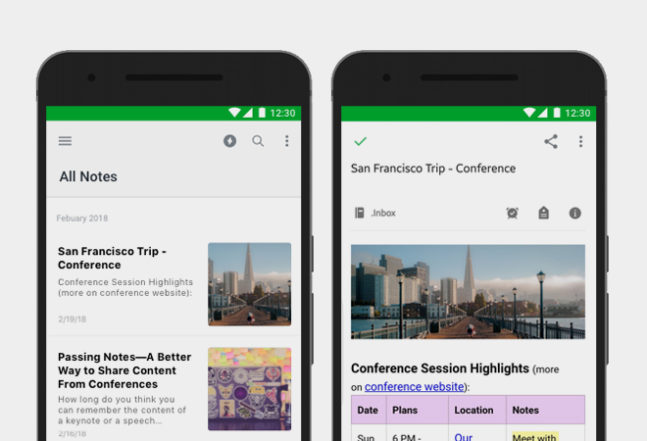
Evernote
Back when we were still getting newspapers and magazines delivered to our houses, you could stick clippings in a folder or a notebook. As great as the internet and its various browsers are, we can’t really take clippings like that with online articles or videos. Evernote looks to fill that need with its organizational tools. It’s essentially a digital notebook where you can drop outside articles and videos and pair them up with your own notes, sketches, ideas, research, lists, and anything else you’ve ever physically put to paper. You can also use it to keep multiple people organized by giving a group access to a single notebook. That way, you and your coworkers/friends/enemies are all on the same digital page. iOS | Android
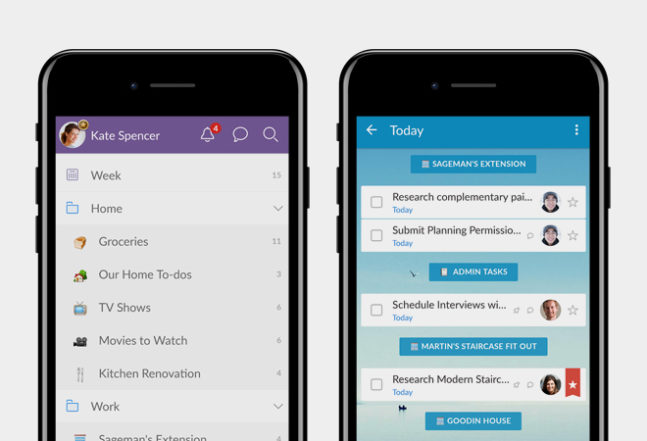
Wunderlist
Wunderlist is fairly simple in its aims. Instead of spreading across a whole bunch of organizational tasks and getting too big, the app focuses on one single aspect of task management. All it’s really trying to do is be really good at to-do lists, which we think it accomplishes. If you want easy lists just for yourself, you can use it for that. If you want something that’ll help you keep track of group projects, household chores, or family engagements, it’ll do that too. You can attach relevant files to any of the lists, you can sync them across multiple devices, and you can chat with anyone involved about the list. iOS | Android
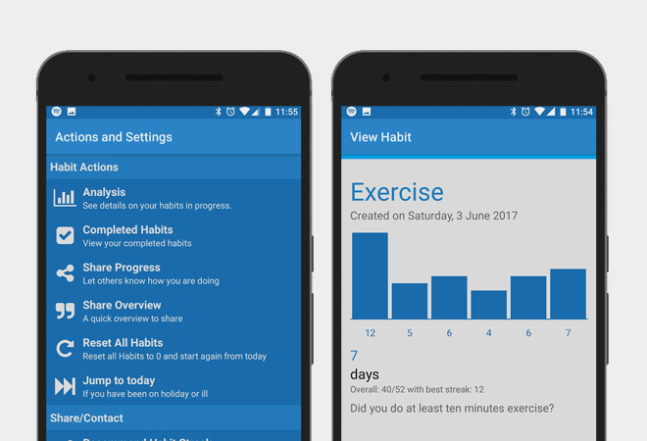
Habit Streak
Habits are the kind of thing you don’t realize you’re making until you suddenly have them. That goes for good and bad habits. Habit Streak aims to make you more conscious of both and keep you on track to solidify the good ones and ditch the bad. Regardless of what you’re trying to do, whether that’s get in shape, read more, learn a new skill, or do literally anything else that takes more than one day to do, you report on your activity and build up habit chains. At the beginning, you don’t want to see your streak end, but eventually that morphs into a habit as routine as anything else. iOS | Android
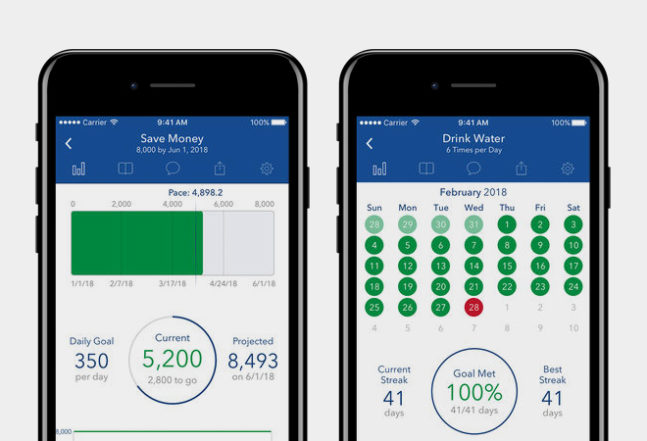
Strides
Strides is similar to Habit Streak, though there are some key differences in how Strides handles its activity tracking. Instead of reporting progress on individual activities, you check off what you’ve done each day. It’s like mixing a habit tracker with a to-do list. As you complete activities, you check them off on the list. So you get that feeling of accomplishment you have with an organized to-do list while also mixing in the benefits of having good habits. iOS
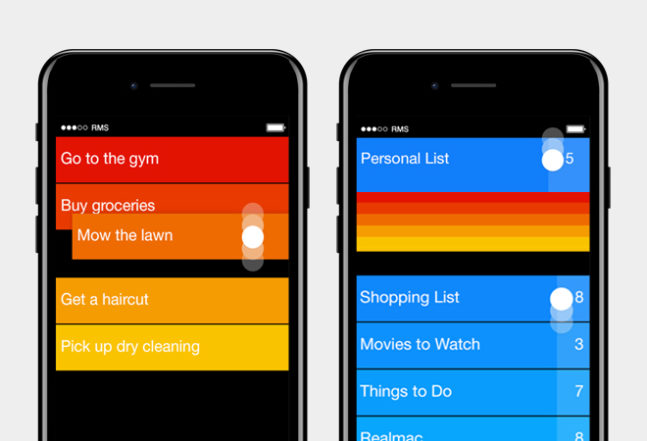
Clear
Clear doesn’t offer much different than your standard to-do list app. Instead, where it excels is in the clean design and intuitive controls. You’ll never get lost looking at it and it incorporates gestures and Trackpad capabilities in a way that no other organizational software on the market has figured out yet. This is definitely an app for people who need simple lists and easy controls to keep themselves on track. None of those ridiculous fancy bars or graphs or percentages. Just a task and whether or not you’ve done it. iOS
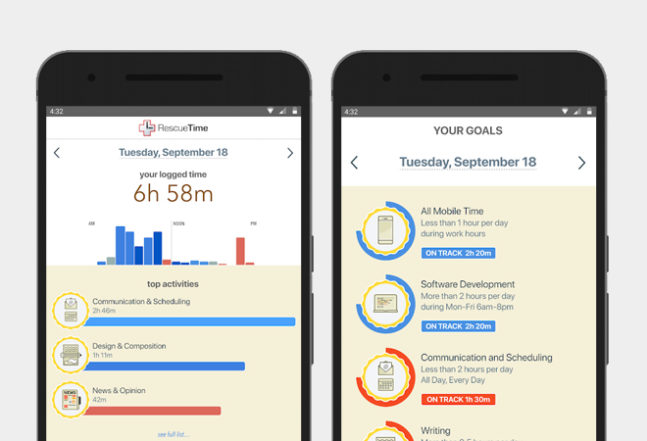
RescueTime
One of the biggest drains on individual productivity is the seductive power of internet distractions and sometimes you really need to quantify just how much time you’re wasting. RescueTime keeps track of exactly what you’re using your device for and will give you a detailed breakdown of how much time you’re spending on your phone and what you’re doing in that time. From there, you can set personal goals and limits, and RescueTime will send alerts and notifications when you approach/meet those goals and limits. If you use it right, you should be able to drastically cut mindless internet time to a minimum. iOS | Android
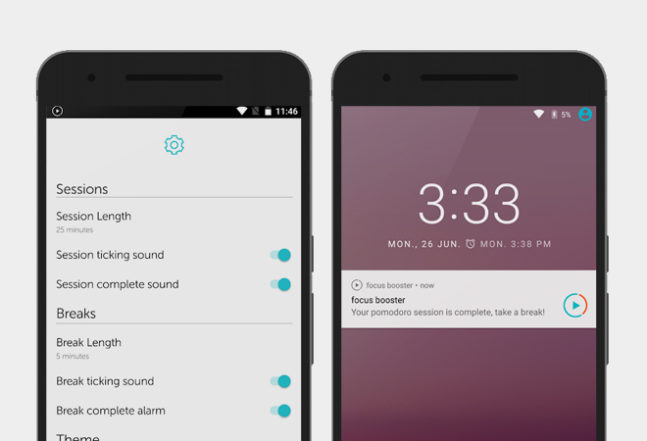
Focus Booster
Focus Booster builds its method around the pomodoro technique, a technique in which you spend a fixed amount of time (usually about 25 minutes) intensely working on a single task, then take a short break to refresh and recalibrate before diving right back in. It’s a method some people swear increases their productivity tenfold. Obviously not everyone is going to benefit from a method like this, since some people simple aren’t productive under this kind of intensity. But if you’ve already found that you work best in quick, focused sprints, you might as well refine your time with this app. Android




